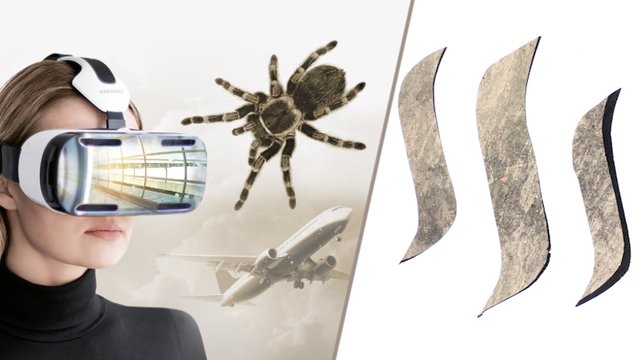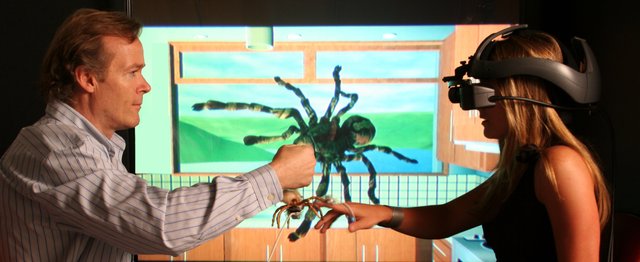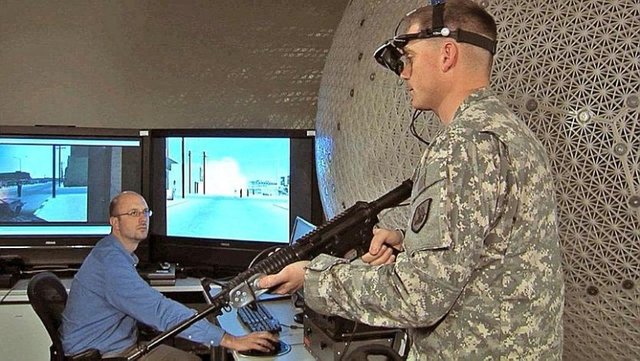How Virtual Reality Could Revolutionize Psychologic Therapy

Virtual Reality has become increasingly popular over the last couple of years.
The industry is improving amazingly fast, the software and graphics get better and better, and more and more people are getting access to it.
Most people use Virtual Reality only for entertainment purposes - riding a rollercoaster or fighting virtual monsters is just so much more fun when you feel like you're actually there!
But Virtual Reality has another very serious, potentially very helpful aspect to it as well - it could help treat mental disorders and revolutionize the way we use therapy.
Almost everyone suffers from stress sometimes - this could be mild or very severe.
20% of the American people suffer from a diagnosable mental disorder - and many more still experience stress and anxiety.
For mental illnesses, treatment is not as simple as with other diseases - medication tends to be over-prescribed and often comes with side effects.
Virtual Reality enables psychologists to create a totally new kind of therapy for their patients.
It gives the patient the ability to face their fears in a controlled environment where they can "escape" from the situation at all times, while it still feels real.
This has been a tool amongst psychologists for many years, but VR technology used to be extremely expensive (and poorly developed).
Now, with the wide availability of VR gear and also the huge improvements on the technical side, VR reality has become both more accessible and more realistic as a therapeutic tool.

Treating PTSD and Anxiety
VR therapy is especially useful for treating patients that suffer from PTSD (Post Traumatic Stress Syndrome) or certain anxiety disorders.
Albert Rizzo from the University of California's Institute for Creative Technologies has been researching VR as a treatment for decades and sees a lot of potential for the future.
While VR therapy can also be successful for patients with autism, attention deficit disorder or those that experienced a stroke, Rizzo and his team are mostly focusing on patients with anxiety or PTSD.
"PTSD and anxiety disorders, like phobias, are characterized and propagated by avoidance," says Rizzo. "When you avoid something in fear, or it makes you feel anxious, you get a temporary sense of relief, and that reinforces continued avoidance. The brain of that person doesn't learn that was then, this is now, and that things that are reminiscent of the trauma are no longer going to hurt you, and you're in a safe environment."-Albert Rizzo, University of California's Institute for Creative Technologies

The idea behind this kind of treatment is exposure therapy - directly facing your fears instead of avoiding them.
In a traditional therapy, the patient would talk the psychologist through the traumatic situation as if it was happening again in the present.
But obviously, there is a lot of imagination involved and it doesn't feel very real if you're just talking about it.
When you're experiencing the situation again in VR on the other hand, the patients really experience and face their fears, learning that what they're scared of can't hurt them anymore and that they are safe now.
This is one of the key elements to overcome PTSD or anxiety, which are disorders where patients usually tend to avoid those hurtful situations.
"Research shows that ACTIVATING fear and anxiety - in a safe place - is the only thing that makes it go away."-Albert Rizzo
Other mental disorders
Although PTSD is the most common disorder where VR therapy is being used, there are also other examples where Virtual Reality can enhance the psychologic therapy.
A recent study from the University of Barcelona for exampled showed great results when treating patients with fears - especially the fear of death.
Addiction is another case where virtual reality can help: When drug addicts get back from rehab, it's often hard to withstand temptations. A study from the University of Houston Graduate College of Social Work has shown that patients treated with VR were less likely to give in to the temptation of drugs and experiencing a relapse.
Autism is closely connected to fear in many cases, so this is another example where VR can be a great addition to the therapy. An experiment from the Newcastle University tested VR therapy with kids who suffer from autism spectrum disorders.
The results showed that they could handle their fears better after experiencing a VR therapy.
Images: Stone Logo by @rubenalexander, 1, 2, 3, Sources: 1, 2, 3, 4, 5, 6, 7
- Instagram -

© Sirwinchester
Interesting read. Thank you very much!
You're welcome and glad you enjoyed the post!
Thanks for the reference. This is a good topic and I hope more research goes into helping normalize victims of PTSD.
Hey I am also sorry some think they need to downvote you to balance things. I always figured downvotes were reserved for plagarism or spam. Everything else should operate like the free market. Kudos!
Thank you for your input!
Yes I thought the same thing about downvoting.. not sure about the balancing either. But I guess there's not much we can do. Thanks for your support either way!
Support me on steemit if you can https://steemit.com/provigil/@provigil/how-to-use-bitcoins-to-buy-provigil-online
Upvoted, but as I can see your post has received some down votes so please make sure not to spam your link too much.
Thanks for the vote and advice
This post has been ranked within the top 25 most undervalued posts in the first half of Mar 15. We estimate that this post is undervalued by $4.02 as compared to a scenario in which every voter had an equal say.
See the full rankings and details in The Daily Tribune: Mar 15 - Part I. You can also read about some of our methodology, data analysis and technical details in our initial post.
If you are the author and would prefer not to receive these comments, simply reply "Stop" to this comment.
Very interesting read I must say!
There is so many potential benefits in the VR world that are yet to be discovered.